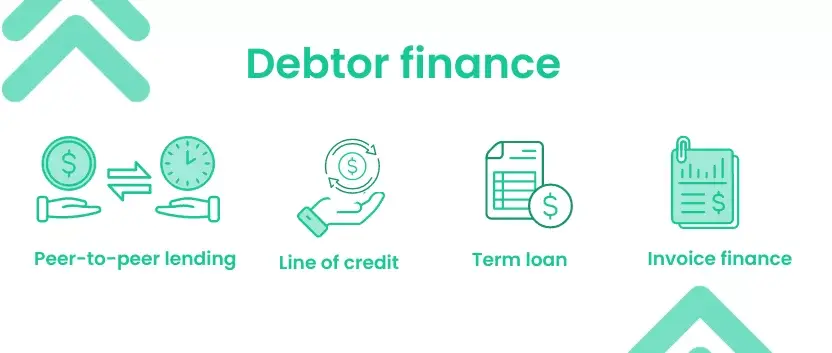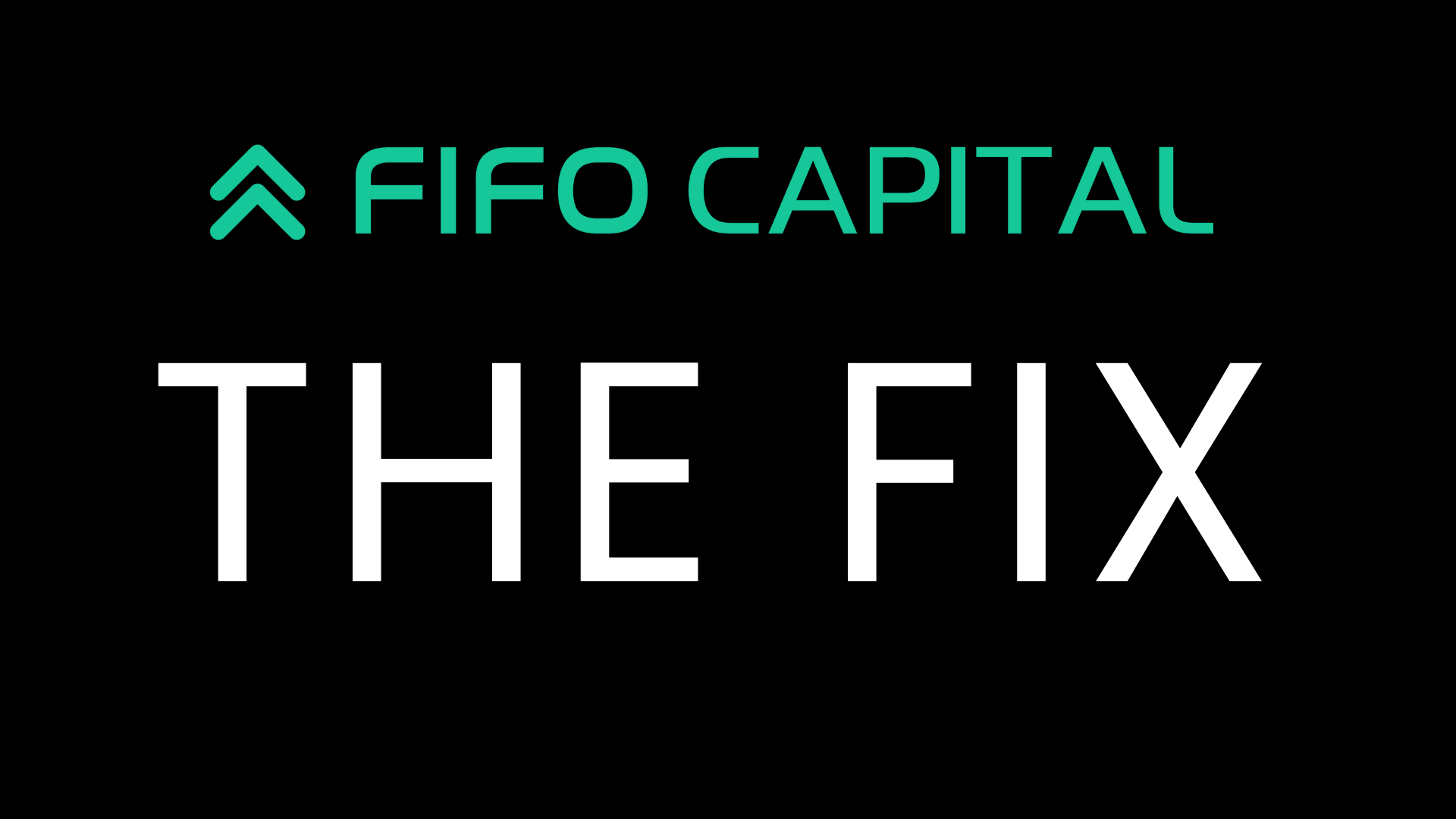Unlocking the Benefits of Finance for Businesses

Understanding the different options available for business financing is an essential part of becoming successful in today’s competitive market. We will explore all types of finance that are open to businesses, big and small, allowing you to make informed decisions about which strategy best suits your needs and can take your company forward. Having a clear grasp on the advantages/disadvantages associated with each type of financing will help ensure you unlock the full potential from whatever choice you make regarding funds for your enterprise.
Short Summary
- Understanding Debt and Equity Financing is essential for businesses to access capital.
- Weighing the pros and cons of various financing options, such as loans, family/friends investments, government grants, etc., can help businesses find the right option.
- Balancing debt and equity is key to optimal business growth, too much of either can have negative repercussions.
Table of Contents
Understanding Debt and Equity Financing

Businesses need debt and equity financing to acquire the money needed for their operations and development. Debt financing involves getting a loan from an outside lender such as a bank, which needs to be repaid with interest over time, yet it can have tax deductible interest payments and allows businesses full ownership of what they own. Regular repayments are essential with this method along with some security provided in order to access funding if required. Equity finance, on the other hand, requires companies selling shares of themselves so that investors become part owners while providing business advice at times too, resulting in more cash flow but reducing control or authority held by the organisation raising funds.
Debt Financing Options

Debt financing is an option for businesses and investors seeking cash, with potential sources ranging from banks to private investors. Businesses can take advantage of short-term loans that last up to 30 days to a year as well as longer loan agreements up to 5 years, which are often used when making large investments like starting a company or purchasing equipment. Store credit provided by finance companies comes with higher interest rates, but it may be suitable if the business pays off the loan during its associated interest-free period while trade credit enables delayed payment for goods in order to provide additional funds through increased cash flow. Factoring firms, on the other hand, buy outstanding invoices at discounted rates so this also provides access to quick capital which then fuels future growth and expansion opportunities within organisations.
Equity Financing Options
Equity financing is a common way for businesses to raise capital by issuing shares on the public stock market, offering them up to a wide range of potential investors. Besides this option, they can also receive funds from private individual contributors (such as angel and venture capitalists or other wealthy individuals with expertise in investments) who gain equity along with their money. These persons usually specialise in high-growth enterprises. It is important that when divesting some company’s ownership rights (in exchange for those funds), decision making, voting privileges, dilution effects through overvaluing issues and exit methods are taken into account beforehand.
Boosting Cash Flow with Finance Companies

Businesses can rely on finance companies to help their cash flow, offering short-term loans with higher interest rates than banks. To protect yourself and your business, it is important to ensure that any financing provider you use is registered by ASIC – this information can be found easily on the MoneySmart website so always do some research before agreeing on a loan. If done properly, taking out a loan from an established financial company will provide substantial benefits for businesses in terms of increased capital without running unnecessary risks.
Leveraging Personal Finances and Savings

Using one’s personal finances and savings to help launch a business can be an advantageous option as it allows the owner complete control over their company, shows commitment in its future success, and often does not require external investments or financing. By investing your own money into your venture, you are also potentially opening up access to investors who could offer investment opportunities. Financial resources for development of the business. Methods such as self-funding with retirement plans like ROBS may apply when seeking this route of finance for launching a new enterprise.
Though beneficial on paper, there is still potential risk associated that must be considered before taking action – primarily loss of funds if things don’t go according to plan. Taxes need to be addressed during all transactions involving capital assets taken from personal sources due caution should always prevail concerning any decision about leveraging personal finances toward setting up an organisation. It is important that it is important. To weigh carefully both pros & cons involved here before deciding upon utilising one’s own money towards funding the firm itself.
Government Assistance and Grants

Government assistance and grants can be used to finance businesses for setting up, expanding or research purposes. It’s important to note that these funds do not usually cover starting a business or buying one. To see if your venture qualifies, researching the programs in place with their specific requirements is necessary. Through this funding support it will provide value financially without adding debt or reducing ownership of the business itself.
Choosing the Right Finance Option for Your Business

Understanding the variations between fixed and variable interest rates, as well as secured vs unsecured borrowing, is imperative in selecting the correct financing solution for your enterprise. Comparing both debt and equity finance to understand their benefits and drawbacks can help you select a choice that’s suited to meet your business’s needs.
When making this decision, factors such as repayment terms, total cost of capital required, duration of funds given out, loan fee structures involved etc are all important aspects which must be taken into account. By thoroughly evaluating these elements carefully prior to picking an option, one will then have adequate information necessary to look over applicable financial choices catered specifically toward aiding businesses like yours with its unique objectives at hand.
Fixed vs Variable Rates
When looking for a finance option, one must take into account the types of interest rates on offer, fixed and variable. Fixed interest stays constant during the loan term, which makes it easier to budget your repayments. Variable fees can change according to economic conditions.
If you need secure repayment amounts then look towards a fixed rate but if you are able to accept fluctuating levels that come with extra features perhaps try going for a variable alternative instead! Either way businesses should carefully consider their financial risk over their timeline before making any decisions involving either type of rate.
Secured vs Unsecured Loans
When selecting a finance solution for your business, one must consider the contrast between secured and unsecured loans. Secured credits require some type of collateral such as equipment or property that can be repossessed by lenders if payments are not made promptly on the loan. The benefit here is that due to this security measure, these kinds of loans usually have lower interest rates than their unsecured counterparts. On contrary, with an unsecured loan there’s no need for any form of guarantee meaning they tend to come at a higher cost in terms of borrow-able money since it’s riskier from the lender’s point of view, thus leading it to carry greater interest rates compared to secure ones. When weighing out both options take into consideration how much assets you’re willing to jeopardise against benefits offered which vary depending upon financial circumstances and other individual needs regarding your enterprise’s cashflow status.
Balancing Debt and Equity for Optimal Growth

It is essential for businesses to find a balance between debt and equity financing in order to ensure optimal business growth. Too much debt could potentially lead to insolvency, while an abundance of equity can create a lack of working capital. Before deciding on any form of funding, it is wise for companies to consider the associated risks as well as rewards each option provides.
To select the right mix between borrowing or owning funds, companies should evaluate their existing financial position, projected expansion possibilities and risk tolerance levels before making decisions about which kind of finance best suits them. This will help guarantee long-term monetary stability along with solid business development – all without putting themselves at too high of a risk level.
Family, Friends, and Informal Financing

Obtaining funds for a business venture can be done through people known to you and informal financing. Partnerships or stock shares may be given as repayment instead of using traditional banking sources, with interest added if required. This route could result in damaged personal relationships due to any disagreements that might arise on payment details should the company face problems later down the line. So it is essential to carefully weigh up all aspects before deciding on such an option. As well as evaluating pros and cons associated with borrowing from family/friends, other factors like debt financing also need consideration when selecting viable funding alternatives for your enterprise.
Tax Deductible Financing Options

Tax deductions can be a useful financial tool for businesses, helping them save money and increase profits. Businesses that take out loans may qualify for tax deductibles on the interest payments, as long as these funds are used solely for business purposes.
In order to make full use of this advantageous option, it is important to recognise all available options and have an in-depth knowledge of how claiming loan interest deduction works, thus reducing their overall taxes liabilities resulting in more capital gain potentials contributing to their stability and progress over time.
Financing Challenges for Small Businesses

Small businesses often battle with exceptional funding issues, for example inconsistent or inadequate cash flow, lack of capital and unanticipated costs. They face difficulties accessing loans because of their poor credit history. Insufficient collateral and high interest rates make it more difficult to get the necessary funds for starting or expanding a business.
To work around these problems, small businesses can look into options like online lenders government aid schemes (such as equity crowdfunding), utilising their own finances/savings resources – in order to maximise financing chances which is essential when looking to have long-term success. Businesses should consider ways to boost their credit score so that they’re better positioned when obtaining money – this may involve creating an effective plan alongside building solid financial foundations.
Summary
It is crucial for businesses to understand the diverse financing options available in order to benefit from finance and reach success. With careful evaluation of both debt and equity funding, as well as other sources such as family, friends or informal avenues of capitalisation, companies can secure enough resources needed for progress and prosperity. As a result, achieving growth objectives along with financial resilience requires that one finds equilibrium between debt/equity choices plus solves any difficulties related to investing into their business.
Frequently Asked Questions
What is financing for businesses?
For businesses, obtaining financial resources to finance their expenses involves getting support from a lender such as a bank or acquiring capital by selling shares of equity. Financing is essential in providing enterprises with the necessary money they require for maintaining operations and enlargement. Borrowing funds and allocating them towards these goals serves as an effective means to ensure progress within organisations seeking growth opportunities. Investors have access to partake financially by purchasing pieces of ownership upon being offered these stakes available on markets.
What are the 7 sources of business finance?
When financing a business, the various methods available include retaining earnings, accepting equity investments and obtaining debt instruments like loans or letters of credit. Financial bootstrapping is another potential option that could be taken advantage of as well as venture capital and angel investing provided by external sources. Government assistance can also come into play while buyouts are an alternative to consider for those interested in taking such measures. Every source has its own level of risk versus reward which must be evaluated carefully when selecting what works best according to the particular needs associated with running a successful business.
What are 3 sources of finance available to a business?
Businesses can acquire funds from three primary sources: debt finance, equity finance and internal funds. Debt financing means borrowing money externally through banks, while equity financing involves selling stock to investors. Internal funding relates to investing the retained profits of prior years into projects or operations. Both these forms of finance enable businesses to access essential financial resources quickly in order to obtain a wide range of objectives depending on their needs at any given time.
What is an example of a business finance?
Business finance is a great option to help businesses manage large expenses. Loans from banks or online lenders are the most popular type of funding available, helping cover costs such as staffing new employees, obtaining equipment and starting up promotional campaigns. Alternative forms of business financing include credit cards for commercial use, overdraft facilities, deferred payment arrangements with suppliers and even loans provided by relatives and friends. This can all be extremely beneficial in helping companies access the resources they need without risking their own capital investment too heavily.
What does business finance do?
Business finance is the act of controlling a company’s money with an aim to make it more successful. This entails figuring out where funding comes from, investing in those funds and being certain that all resources are used sensibly and productively. By having comprehension of financial principles, businesses can guarantee their fiscal prosperity.
For any business entity to remain afloat financially, they have to be savvy about managing finances wisely so as for them not only survive but also thrive economically in this ever-changing landscape.

.webp)

